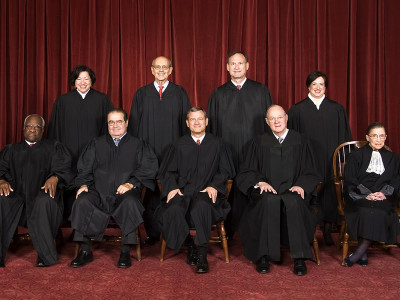Search Results for: feed
A summer course for foreign lawyers interested in US environmental law
This summer Berkeley Law is providing an exciting opportunity for lawyers around the world who are interested in learning more about US environmental law. Our seventeen-day course in late June and early July provides a thorough grounding in all the major issues in US environmental law (ranging from air pollution to natural resources, water rights …
Continue reading “A summer course for foreign lawyers interested in US environmental law”
CONTINUE READINGBiofuels and Food Prices
A recent economics paper suggests strongly that biofuels have raised food prices for the world’s poor.
Berkeley economist Brian Wright has a disquieting article in the Winter 2014 issues of the Journal of Economic Perspectives, which just crossed my desk. JEP is published by the American Economic Association and is a great resource for those of us who are interested in economics but aren’t professional economists. This article is a case in …
Continue reading “Biofuels and Food Prices”
CONTINUE READINGUtility Air Regulatory Group v. EPA: Another Take on the SCOTUS Oral Argument
Decision favoring EPA seems likely
The venerable pastime of U.S. Supreme Court-watching always involves divergent opinions that, as Rick Frank noted, all should be taken with a grain (or even a pound) of salt. The outcome of Utility Air Regulatory Group v. EPA is decidedly uncertain, but I left the oral argument yesterday more optimistic than my Legal Planet colleague. …
Continue reading “Utility Air Regulatory Group v. EPA: Another Take on the SCOTUS Oral Argument”
CONTINUE READINGCalifornia’s Proposed Drinking Water Program Reorganization: A Primer
What would the shake-up mean for those who currently lack affordable access to safe drinking water?
A shake-up of California’s struggling Drinking Water Program is in the works. What follows is a little history, context, and a few thoughts on what it will likely mean for drinking-water stakeholders—in particular those who have the hardest time accessing safe drinking water. A history of problems for the Drinking Water Program Last April, Jonathan …
Continue reading “California’s Proposed Drinking Water Program Reorganization: A Primer”
CONTINUE READINGTen Energy Stories to Watch in 2014
What will shake the energy world this year?
In our energy law classes at Cal, we like to start the day by talking about Energy in the News. The media never fails us. Every day, there are multiple energy-related stories of significance touching on resource development, new technologies, policy shifts, jobs, regional politics, prices, international relations, or the environment. Once you start looking …
Continue reading “Ten Energy Stories to Watch in 2014”
CONTINUE READINGAre Transit Strikes Bad for the Environment?
Banning public transit strikes might help the environment
Even if you’re not from the Bay Area, you’ve probably heard about the labor troubles at the Bay Area Rapid Transit system (BART) – the rail system that is one of the largest public transit providers here in the Bay Area in terms of passengers. Hundreds of thousands of commuters use the BART system on …
Continue reading “Are Transit Strikes Bad for the Environment?”
CONTINUE READINGHelping to Break The Junk Food Habit
Some of the methods used to regulate alcohol could help with junk food.
A recent study shows that rats find oreos addictive — they like eating them just as much as they like cocaine. And they definitely preferred them to healthier foods like rice cakes. People seem to have the same difficulty in resisting junk food as rats. What’s to be done? A recent paper by RAND researchers suggests that relatively modest …
Continue reading “Helping to Break The Junk Food Habit”
CONTINUE READINGMore Musings on the Cert Petition Grant in the Greenhouse Gas Emissions Case
Does Regulating Greenhouse Gases Lead to Absurd Results and What Happens Once the Court Rules?
In follow up to my early morning post of this morning, here are a couple of additional points. 1) A related but different argument petitioners are making about why the PSD provisions don’t apply to the regulation of greenhouse gases is that the application of the provisions would lead to absurd results. The absurd results …
Continue reading “More Musings on the Cert Petition Grant in the Greenhouse Gas Emissions Case”
CONTINUE READINGCalfiornia Bans Lead Ammunition
New Law Is Welcome, But Probably Won’t Take Full Effect Until 2019
California Governor Jerry Brown has signed legislation that will ban the use of lead ammunition in California by hunters. In approving AB 711 (Rendon), Brown withstood furious lobbying efforts by the National Rifle Association and some (but not all) hunting organizations, who had urged the Governor to veto the legislation. AB 711 was supported by …
Continue reading “Calfiornia Bans Lead Ammunition”
CONTINUE READINGA Farewell to August: Tax Private Jets!
For Dan, Labor Day means thinking about Labor. For me, it means thinking about the horrific traffic that Cape Cod summer residents face on their way back to wherever. Or rather, it means thinking about the ridiculous mode of transportation the some friends of mine used to avoid that traffic. My friends work for a …
Continue reading “A Farewell to August: Tax Private Jets!”
CONTINUE READING








